Monotheism Dualism Zoroastrianism
Zoroastrianism, the first monotheistic religion known.
Zoroastrustha, sage poet, singer?
Here is an extensively detailed delve into Zoroastrianism. https://www.youtube.com/watch?v=b1lcAX354cg
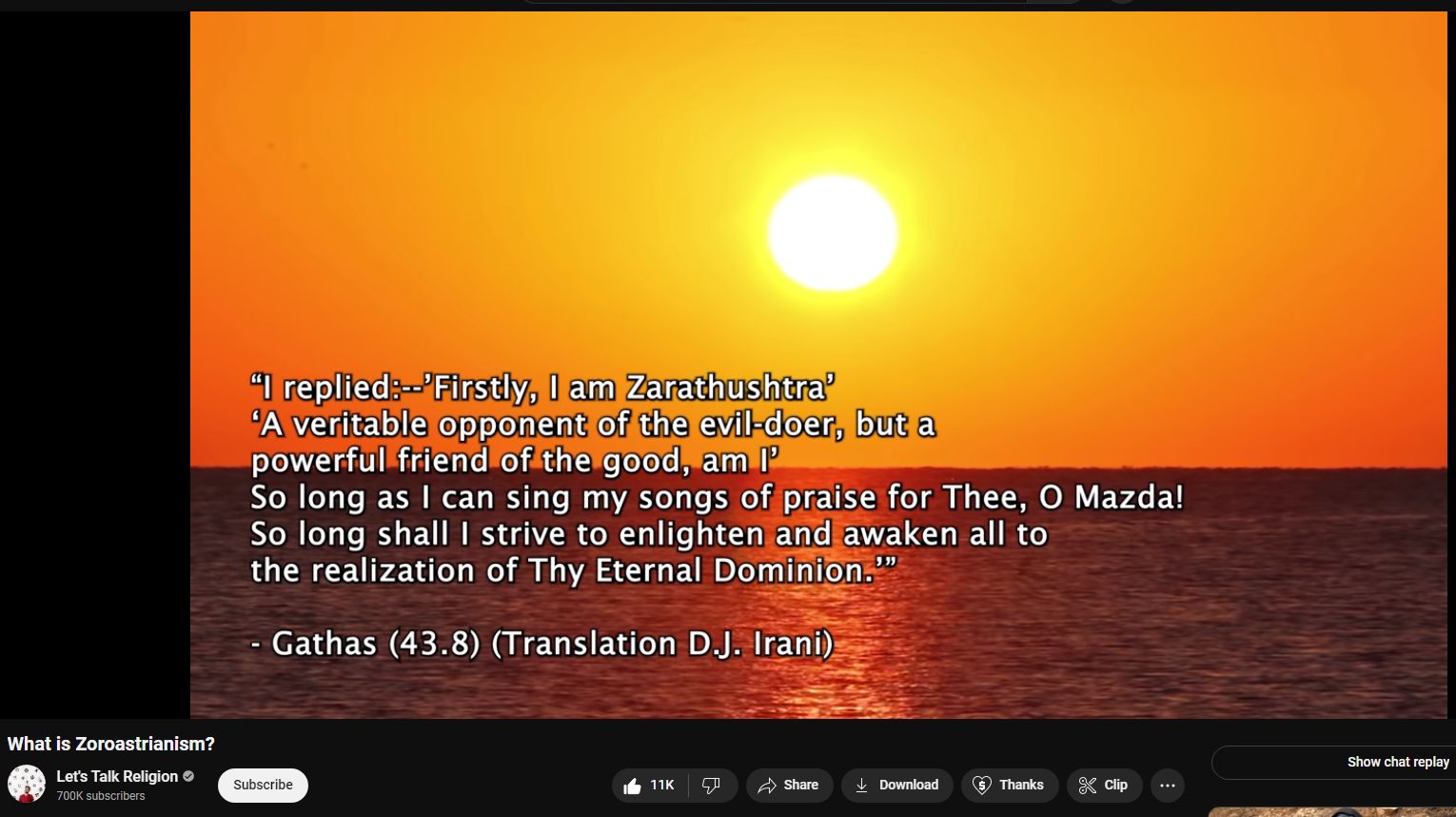
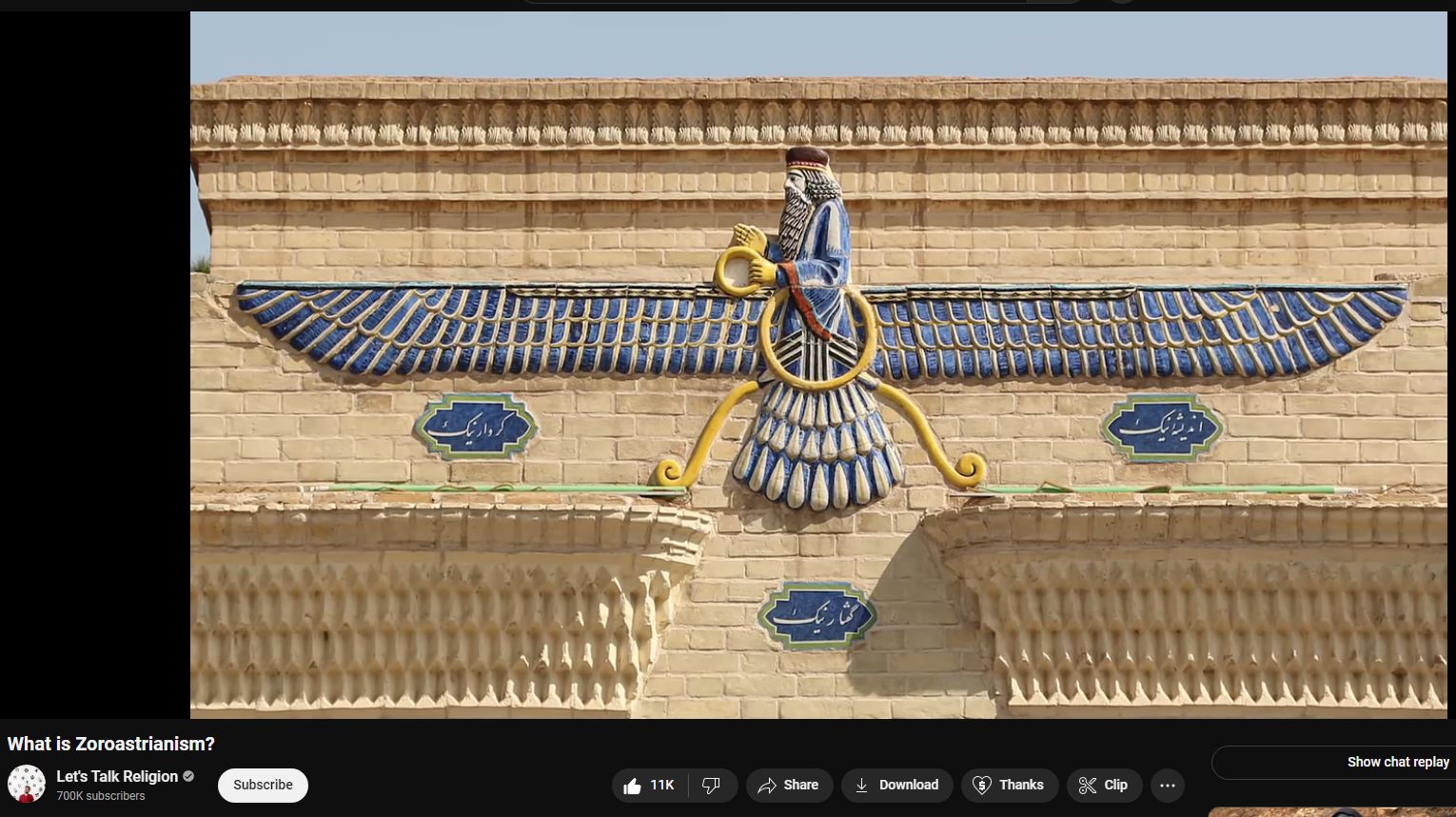
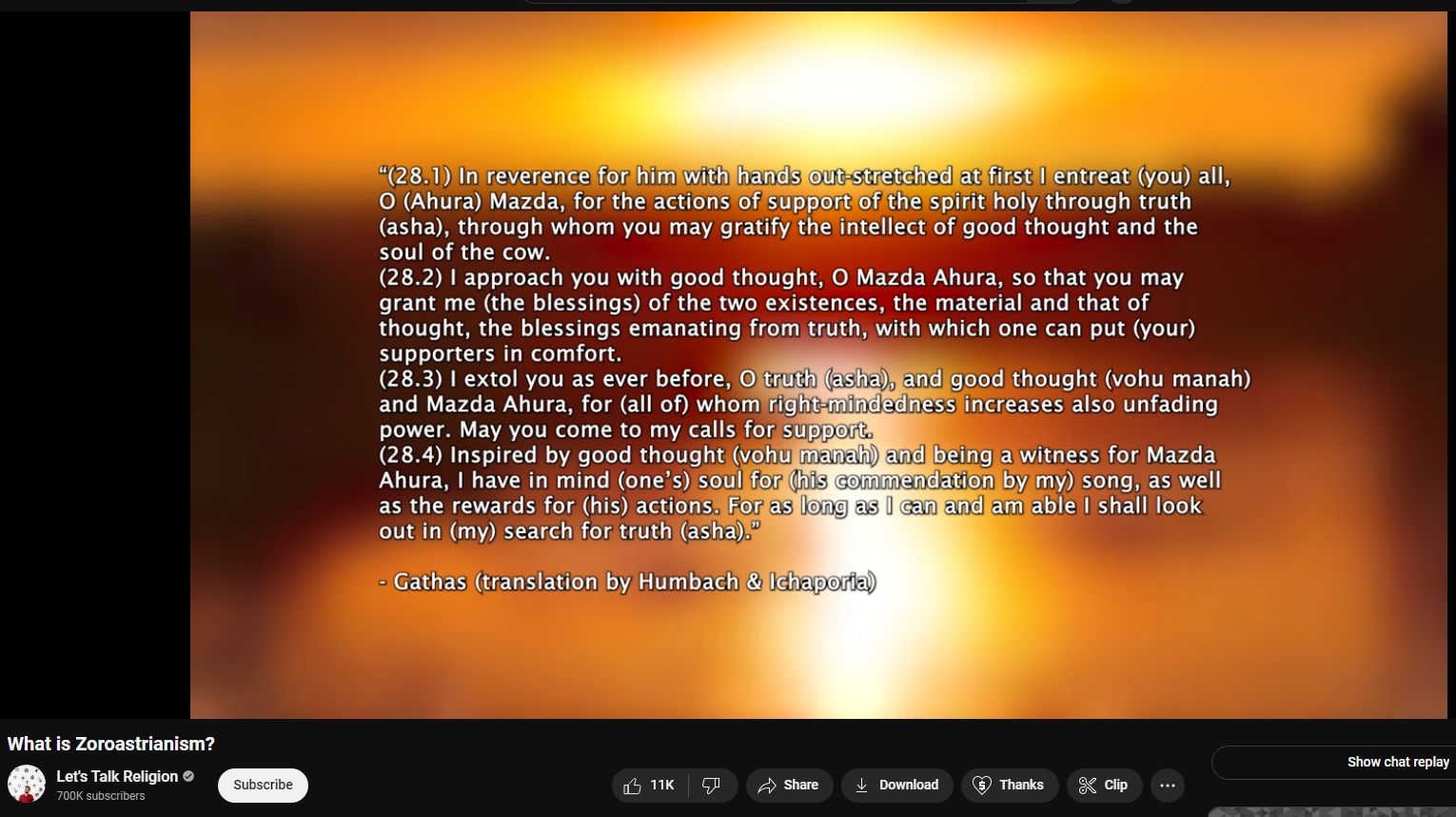
Zoroastrianism is one of the world’s oldest continuously practiced religions, originating in ancient Persia (modern-day Iran) over 3,000 years ago. It is founded on the teachings of the prophet Zoroaster (or Zarathustra in Avestan), who is believed to have lived sometime between 1500 BCE and 600 BCE, though the exact dates are subject to scholarly debate. Zoroastrianism was the predominant religion of Persia until the Arab conquest in the 7th century CE, which led to the widespread conversion of the region to Islam.
Core Beliefs
The central tenet of Zoroastrianism is the cosmic struggle between good and evil. At the heart of its theology is the supreme god Ahura Mazda (Wise Lord), who represents truth, light, and goodness, and is opposed by Angra Mainyu (Destructive Spirit), the embodiment of darkness, deceit, and evil. Humans are considered integral participants in this cosmic battle, endowed with free will to choose between good and evil, and their choices are believed to have consequences for their soul after death.
Key Concepts
– Dualism: Zoroastrianism is characterized by a dualistic cosmology, dividing the universe between the forces of good and evil. This dualism is moral, spiritual, and cosmic in nature.
– Fire Worship: While Zoroastrians are often mistakenly thought to worship fire, they actually regard fire as a symbol of Ahura Mazda’s purity and presence. Fire temples hold an eternal flame, maintained by priests, serving as a focal point for worship.
– Asha and Druj: These are fundamental concepts representing order, truth, and righteousness (Asha), versus chaos, lies, and evil (Druj). Adherents strive to promote Asha through good thoughts, good words, and good deeds.
– Eschatology: Zoroastrianism has a detailed eschatology, describing the end of the world, the resurrection of the dead, and the final judgment. This includes the coming of a savior figure, Saoshyant, who will lead the forces of good in a final victory over evil.
Practices and Rituals
Zoroastrian rituals often revolve around the elements, especially fire, which is considered pure and purifying. Ritual cleanliness is of paramount importance, and there are specific rites for purification. Worship includes prayer, offerings, and the celebration of festivals. Navroz, the Zoroastrian New Year, is one of the most important festivals, celebrated at the spring equinox.
Sacred Texts
The primary sacred text of Zoroastrianism is the Avesta, which includes the Gathas—hymns thought to be composed by Zoroaster himself—along with other later texts. The Avesta outlines the religion’s theology, cosmology, and liturgy.
Decline and Diaspora
After the Muslim conquest of Persia, Zoroastrianism gradually declined in its homeland. However, communities have persisted in Iran, and significant populations exist in India, where they are known as Parsis, and in other parts of the world due to migration. Despite its small size today, Zoroastrianism has had a lasting impact on other world religions, notably influencing Judaic, Christian, and Islamic thought and practices.
Modern Zoroastrianism
Today, Zoroastrian communities are found primarily in India (Parsis) and Iran (Zoroastrians), with diaspora communities in North America, Europe, and Australasia. They continue to practice their religion, celebrate their festivals, and contribute to the societies in which they live, while also facing challenges related to assimilation, declining numbers, and debates over conversion and intermarriage.
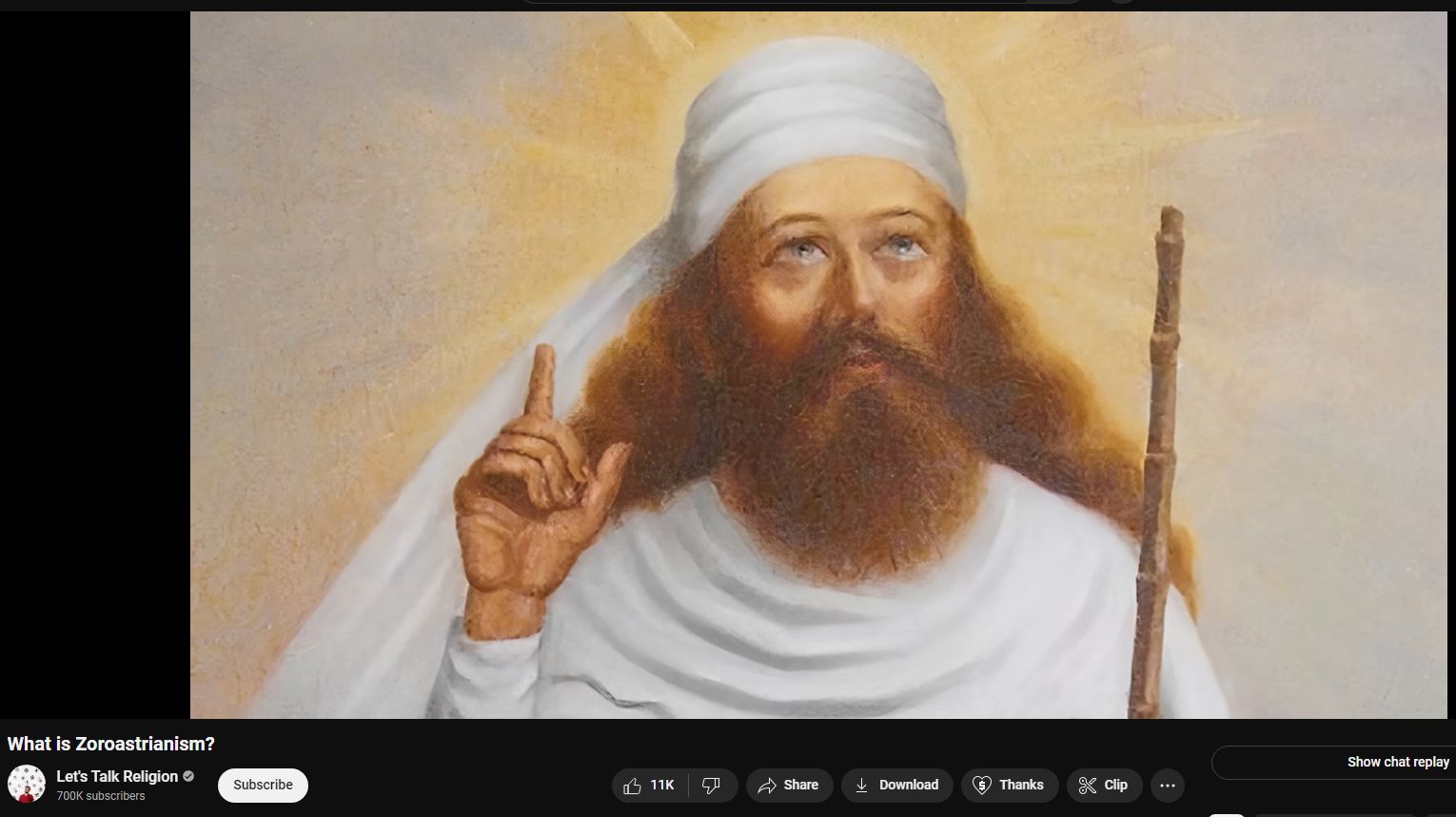
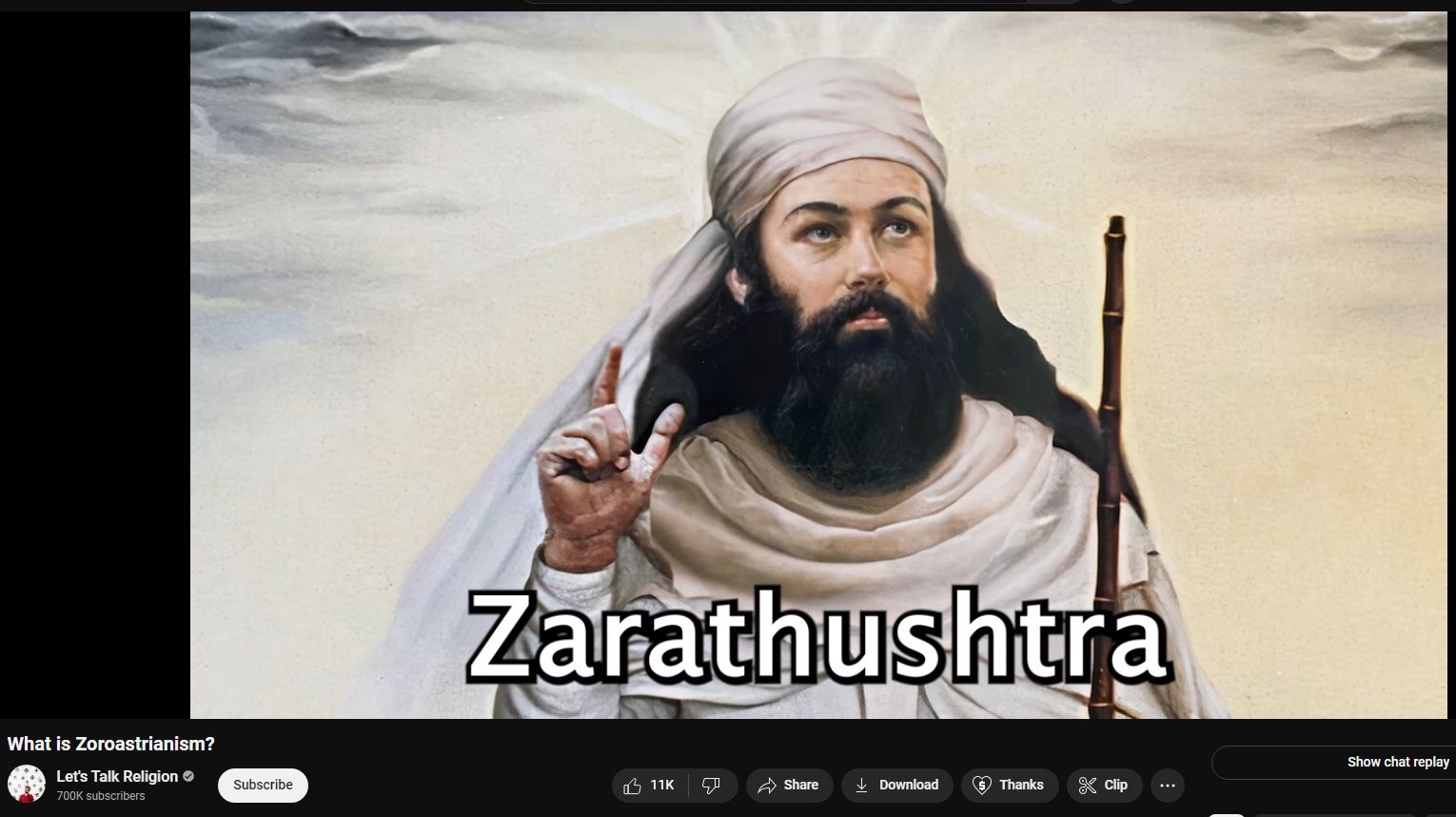
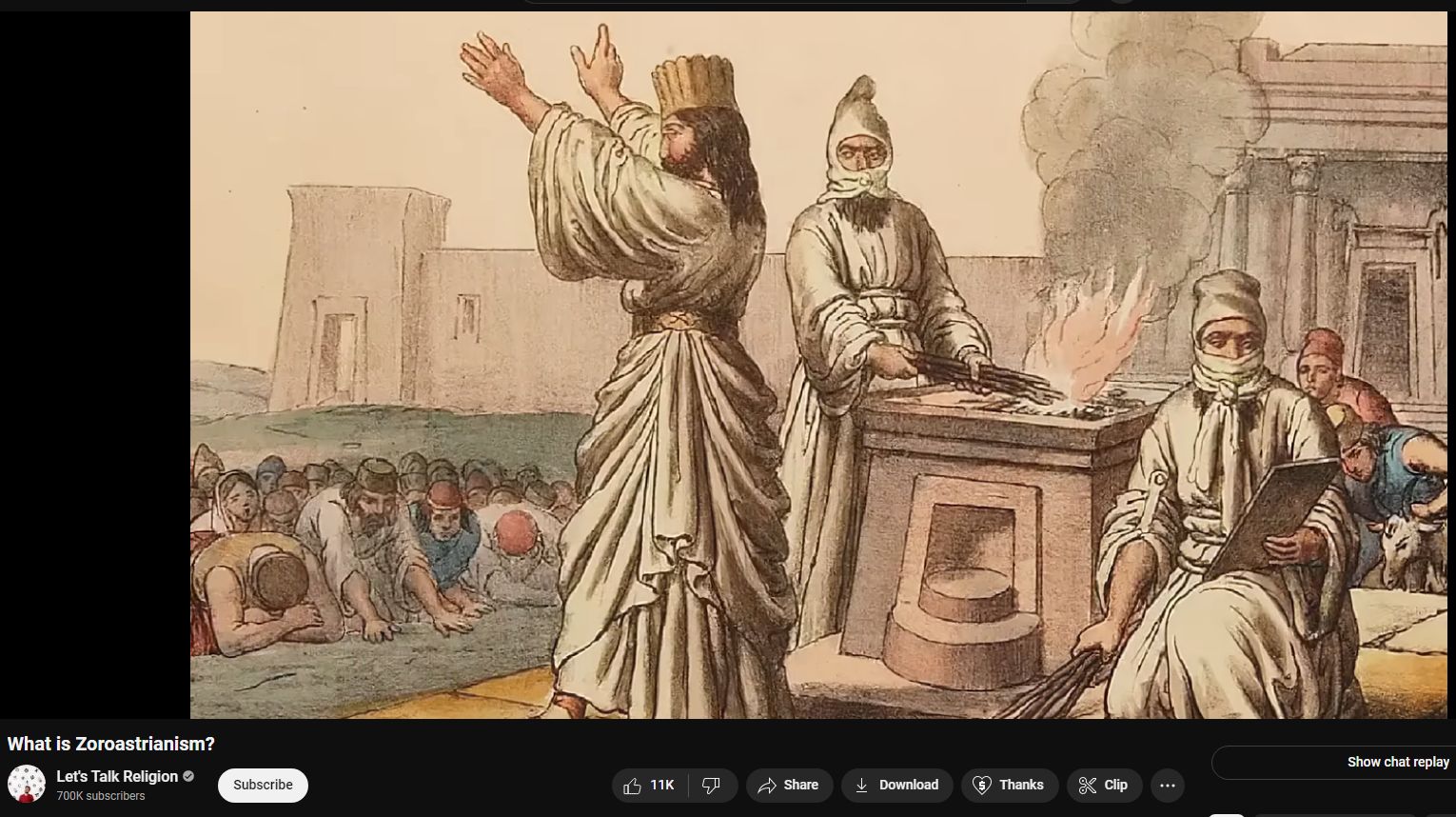
Gathas — poems, songs, hymnal, core teachings

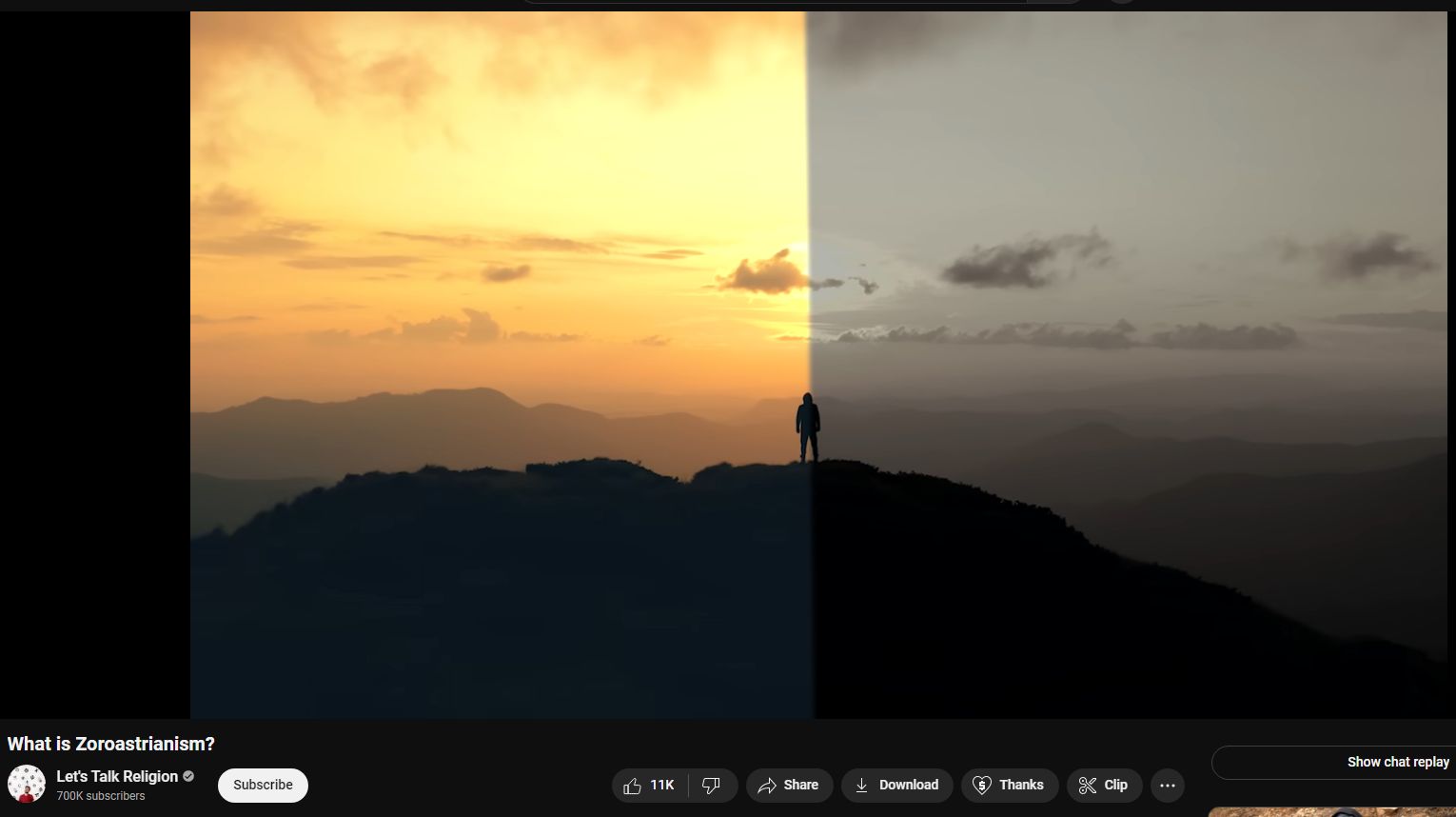
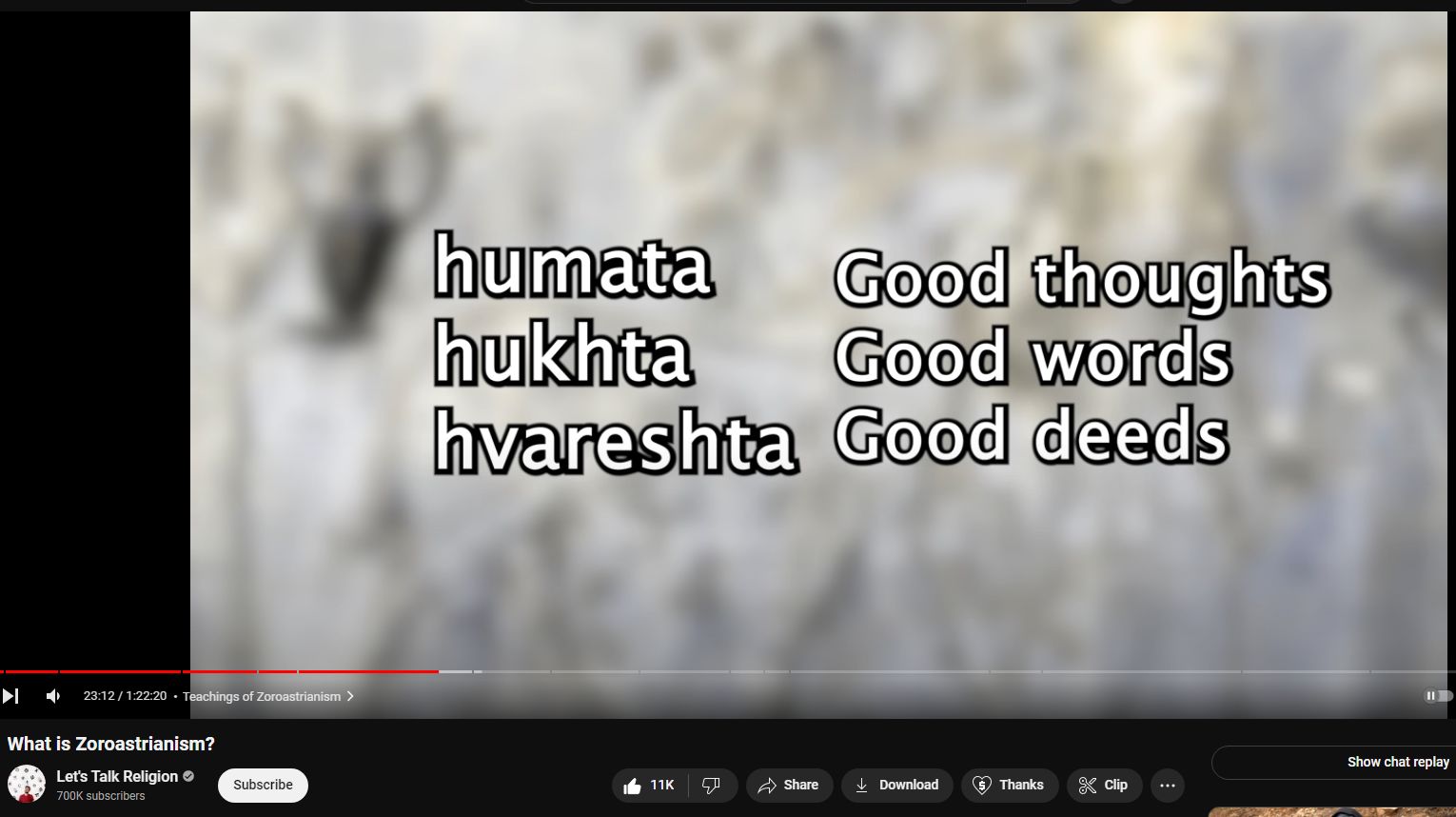
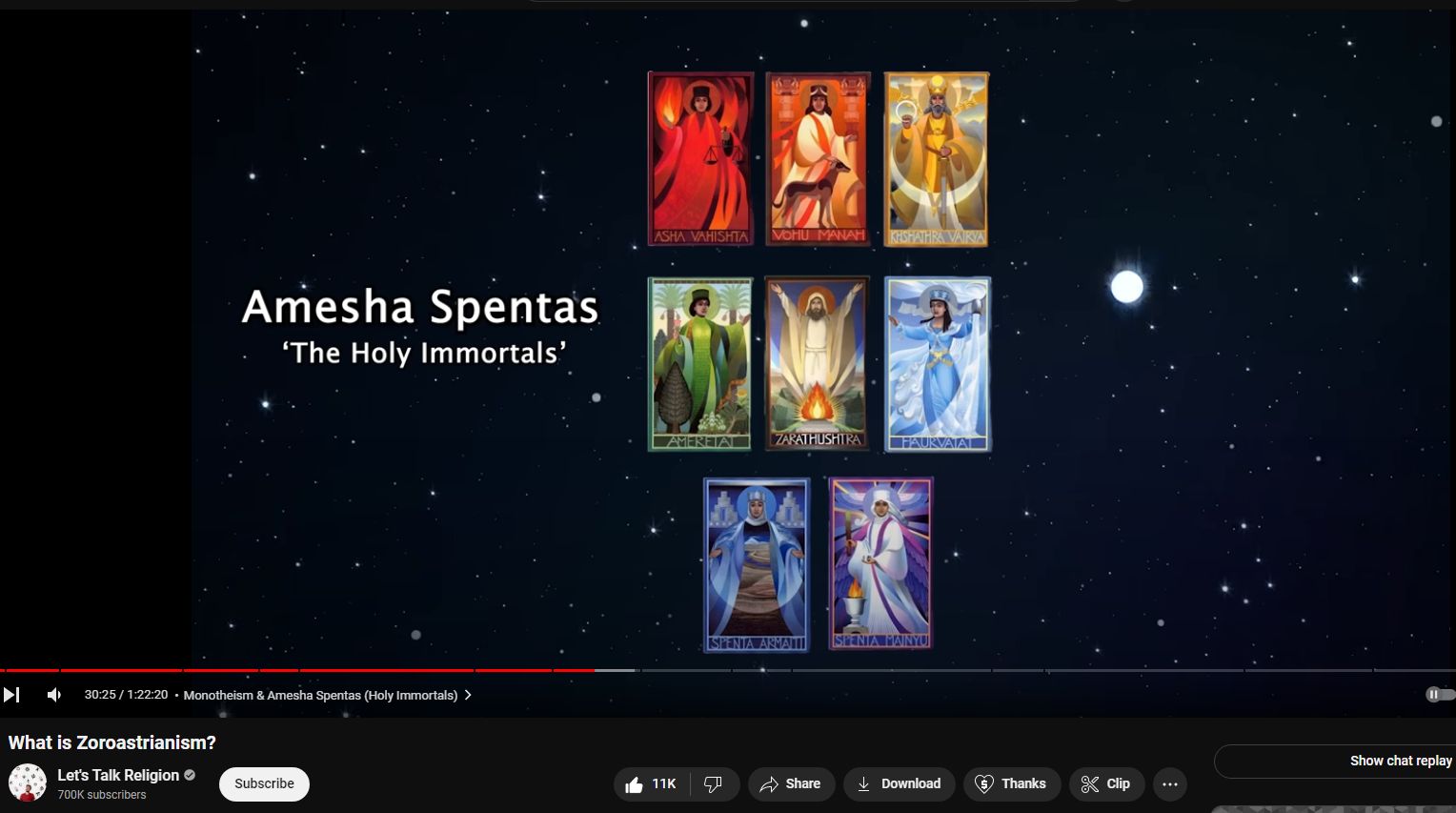
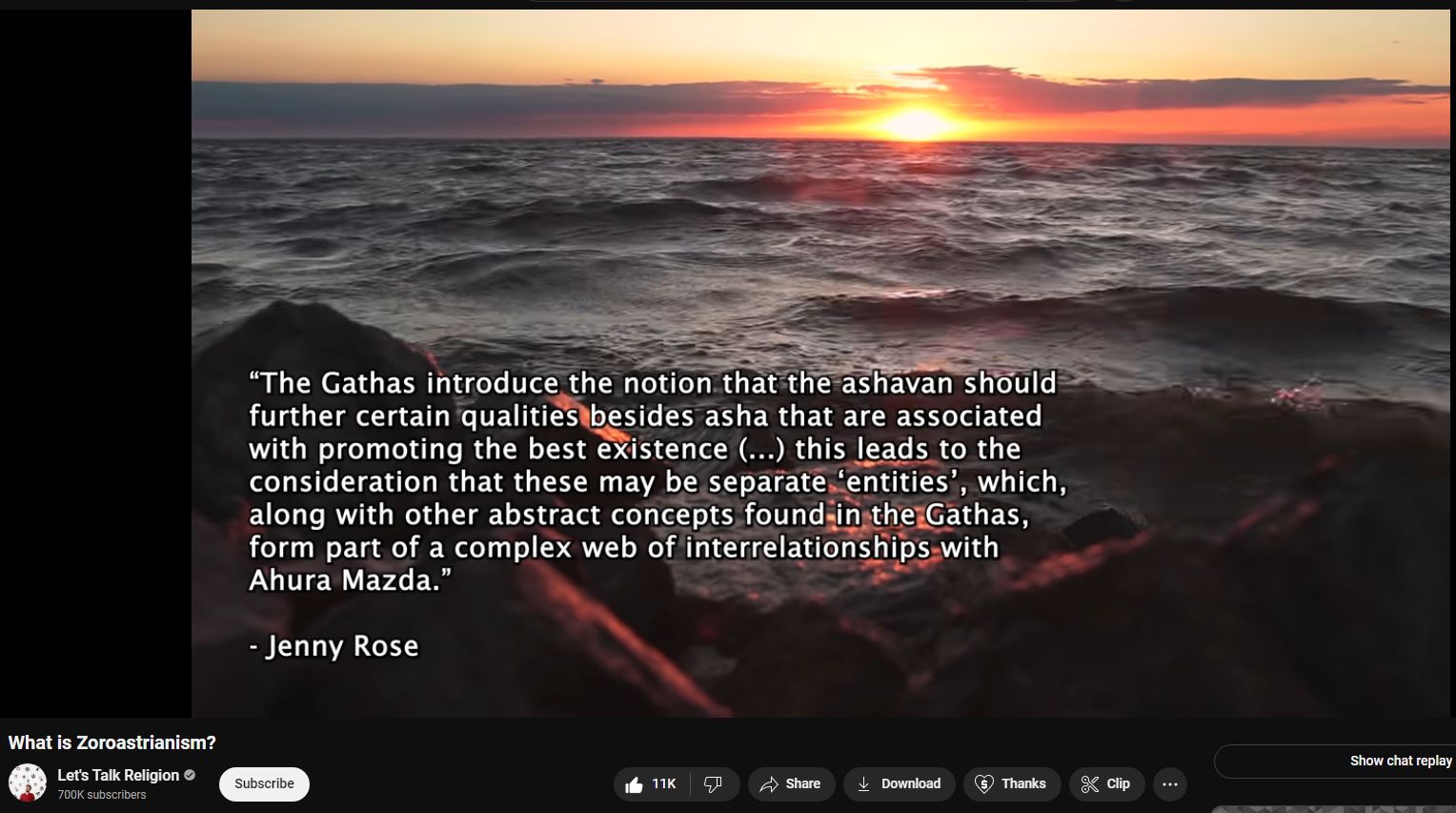
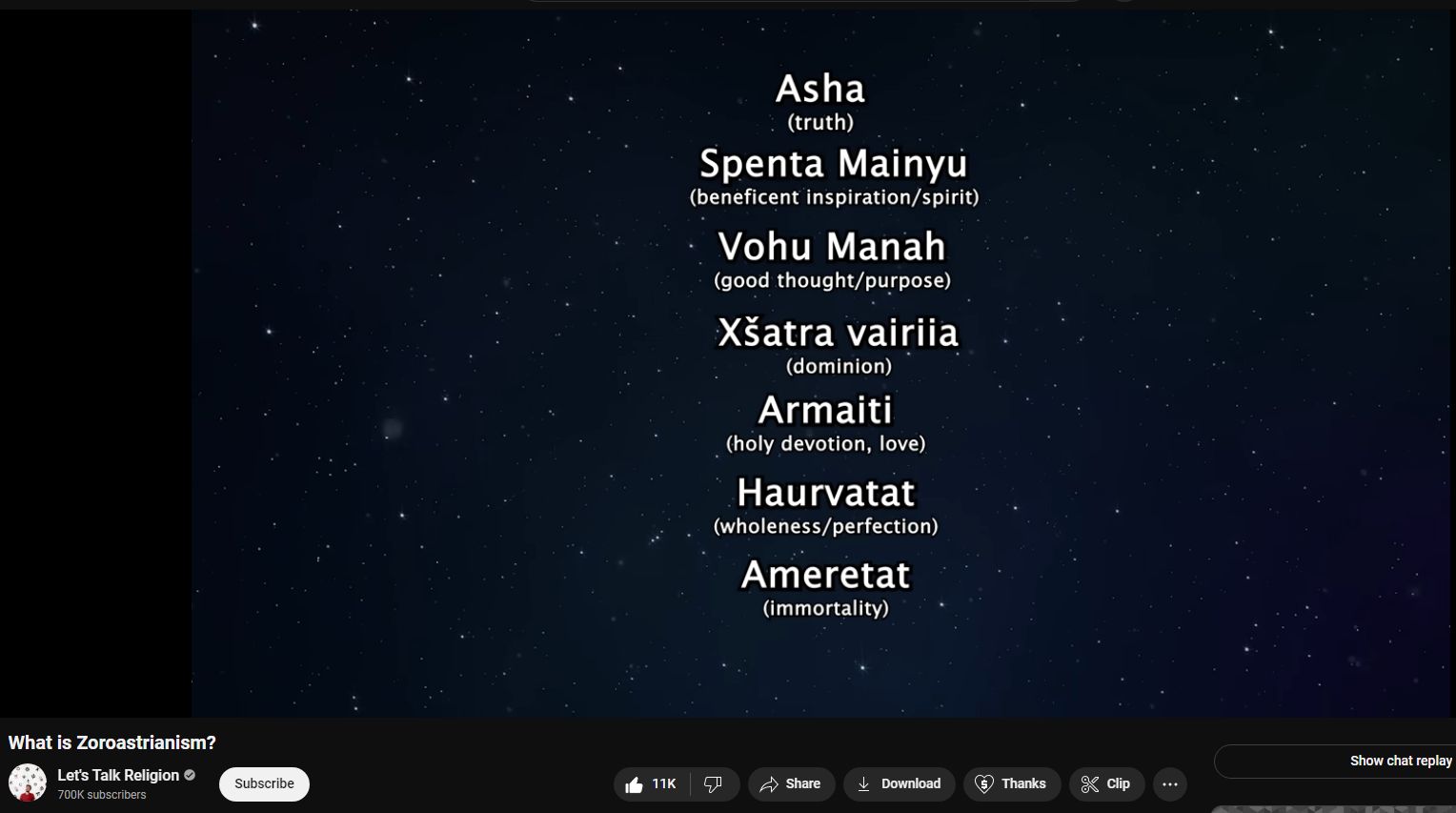

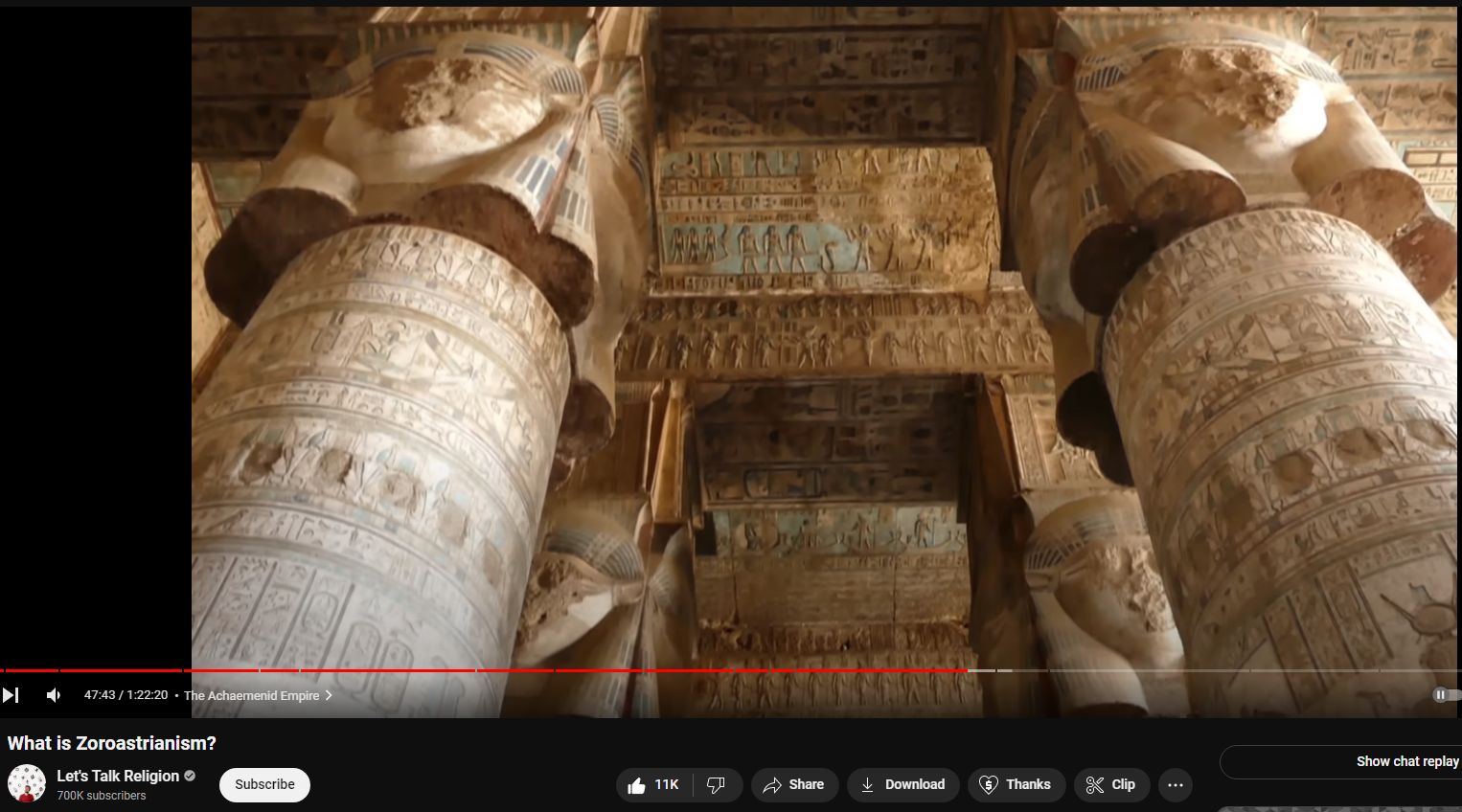
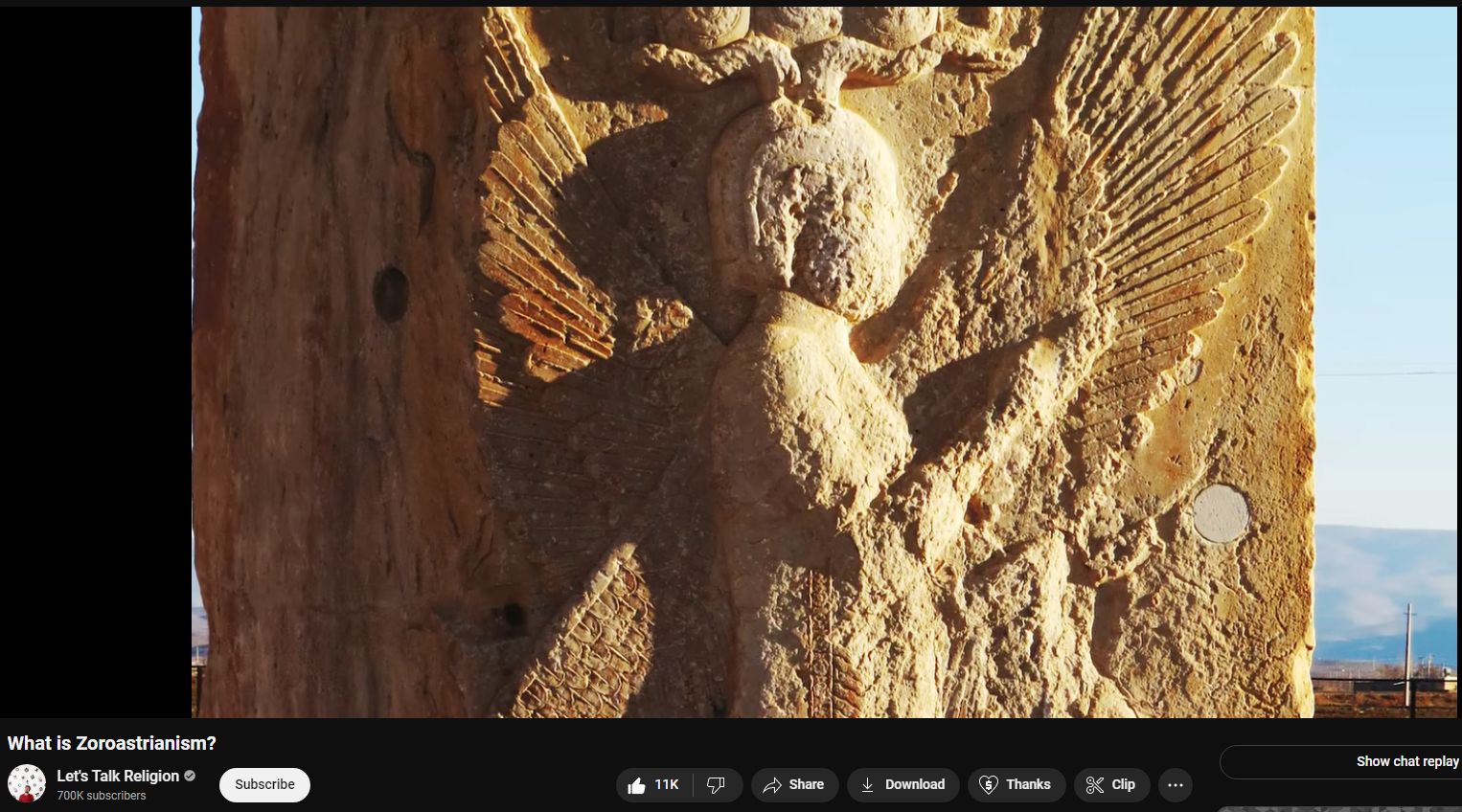
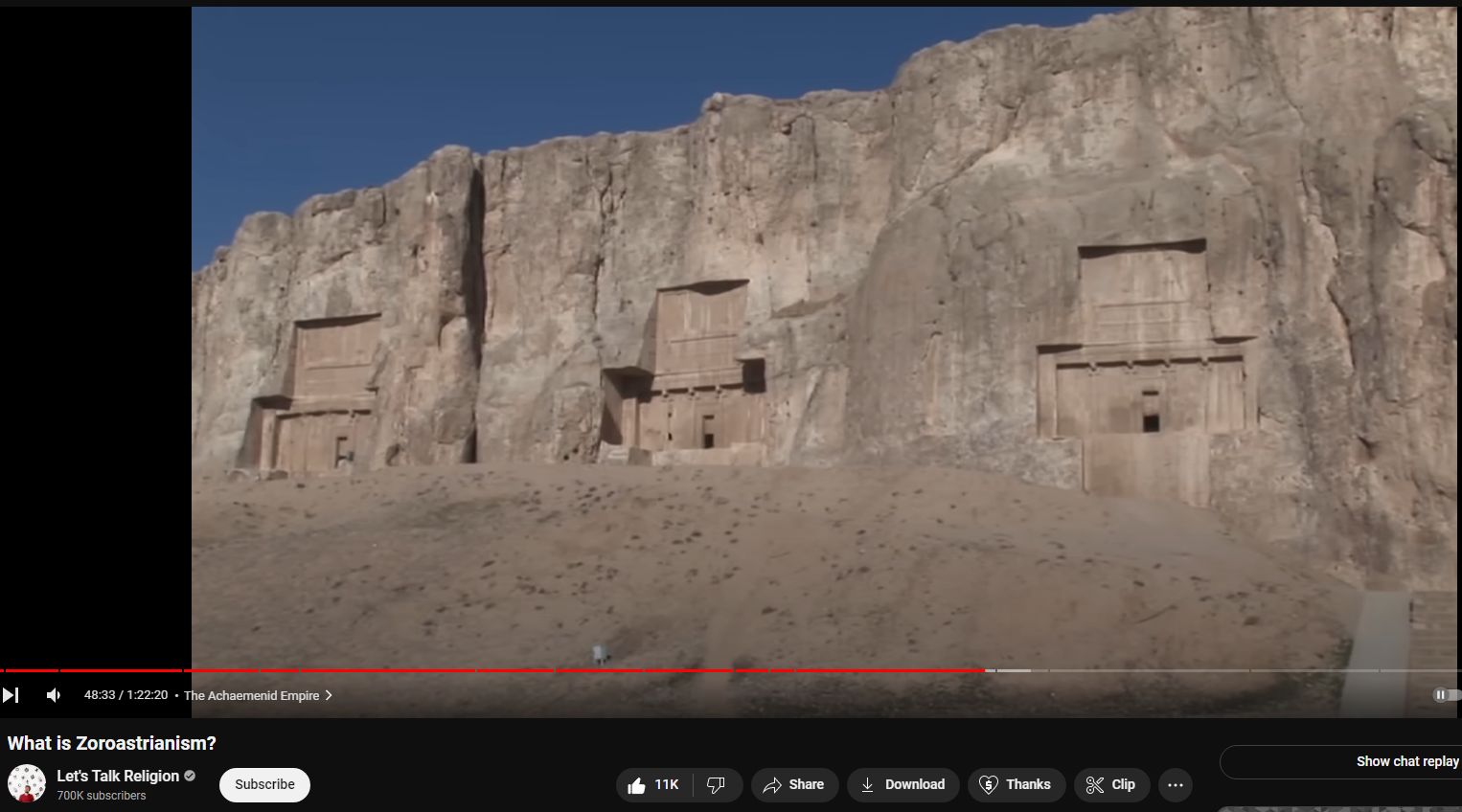
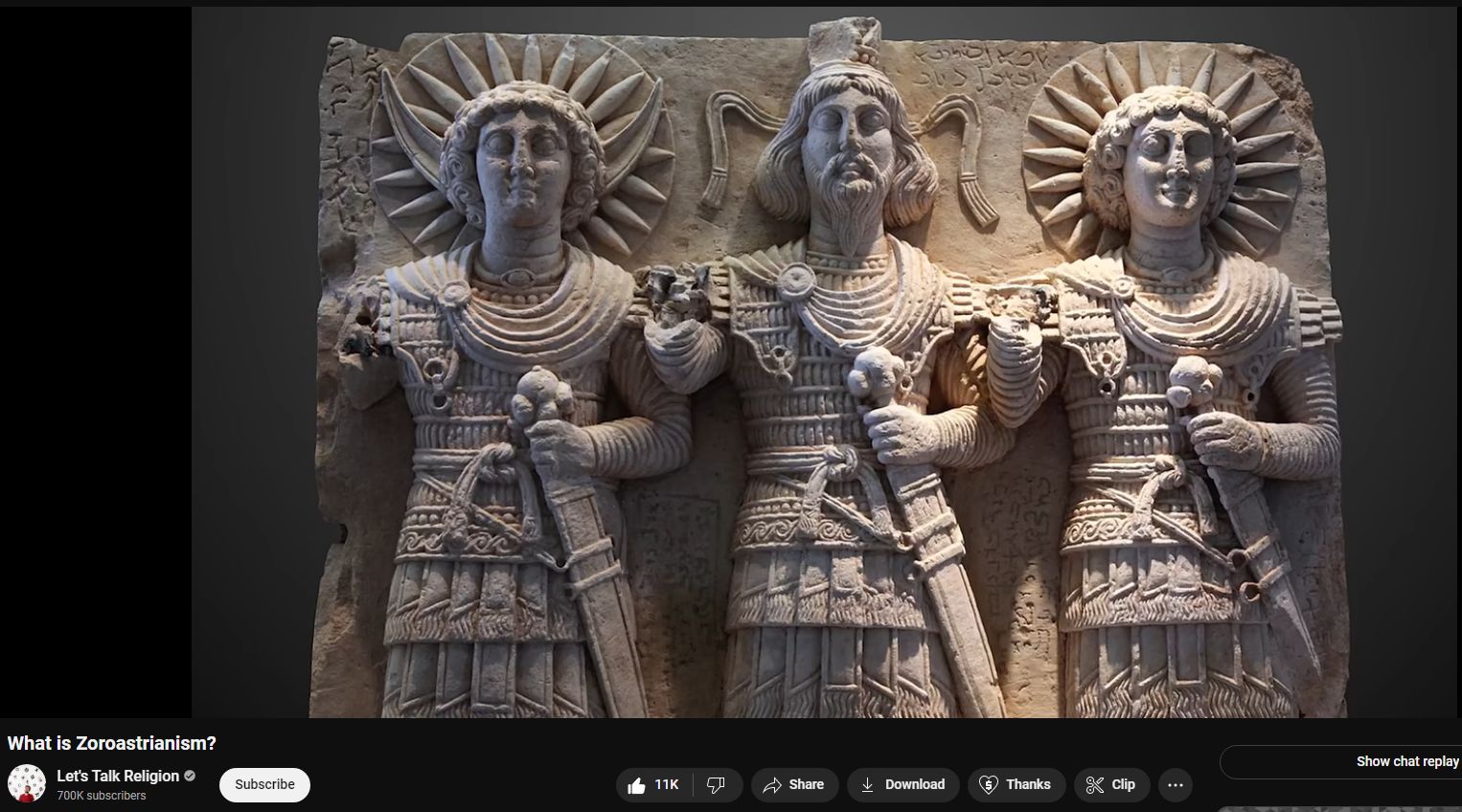
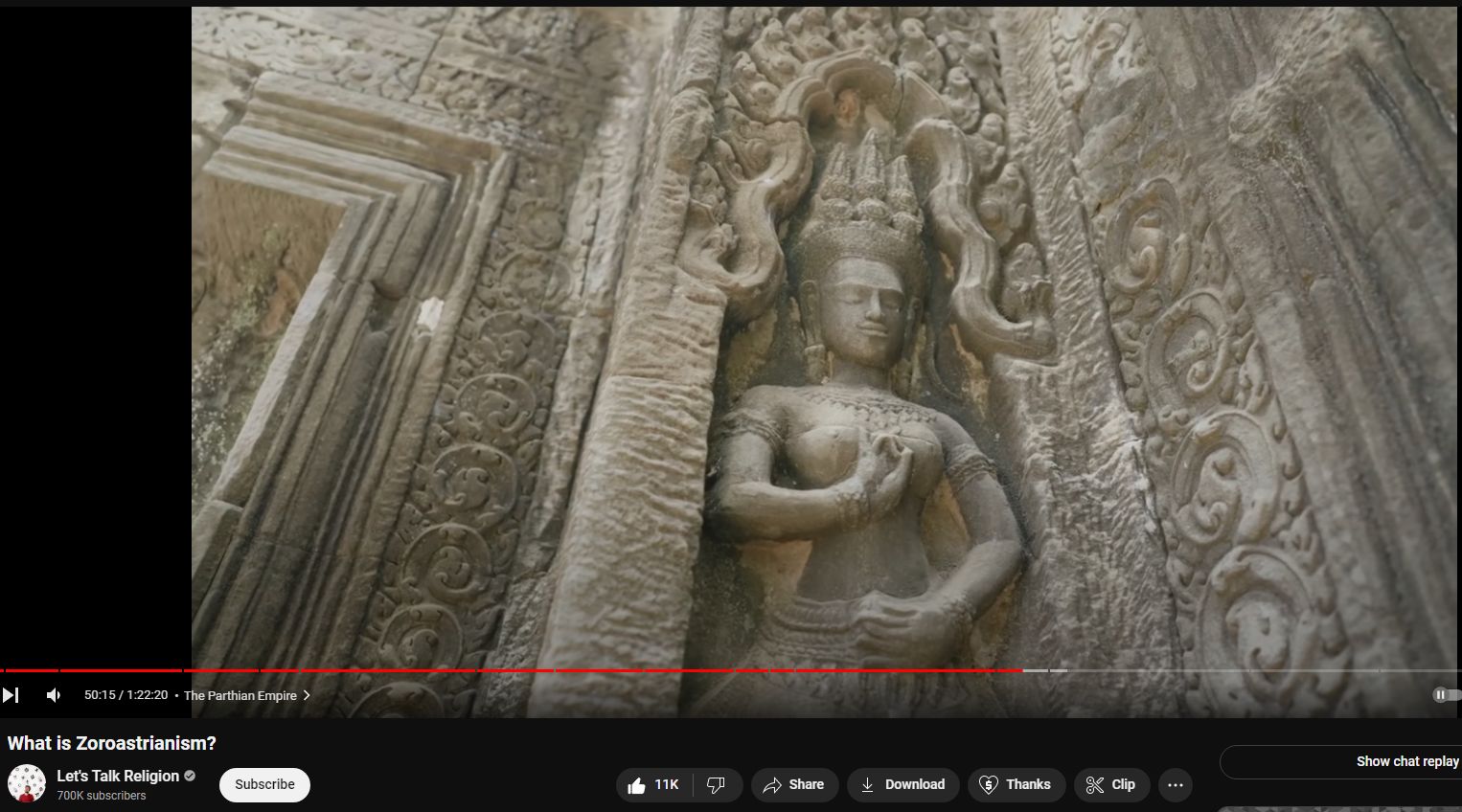
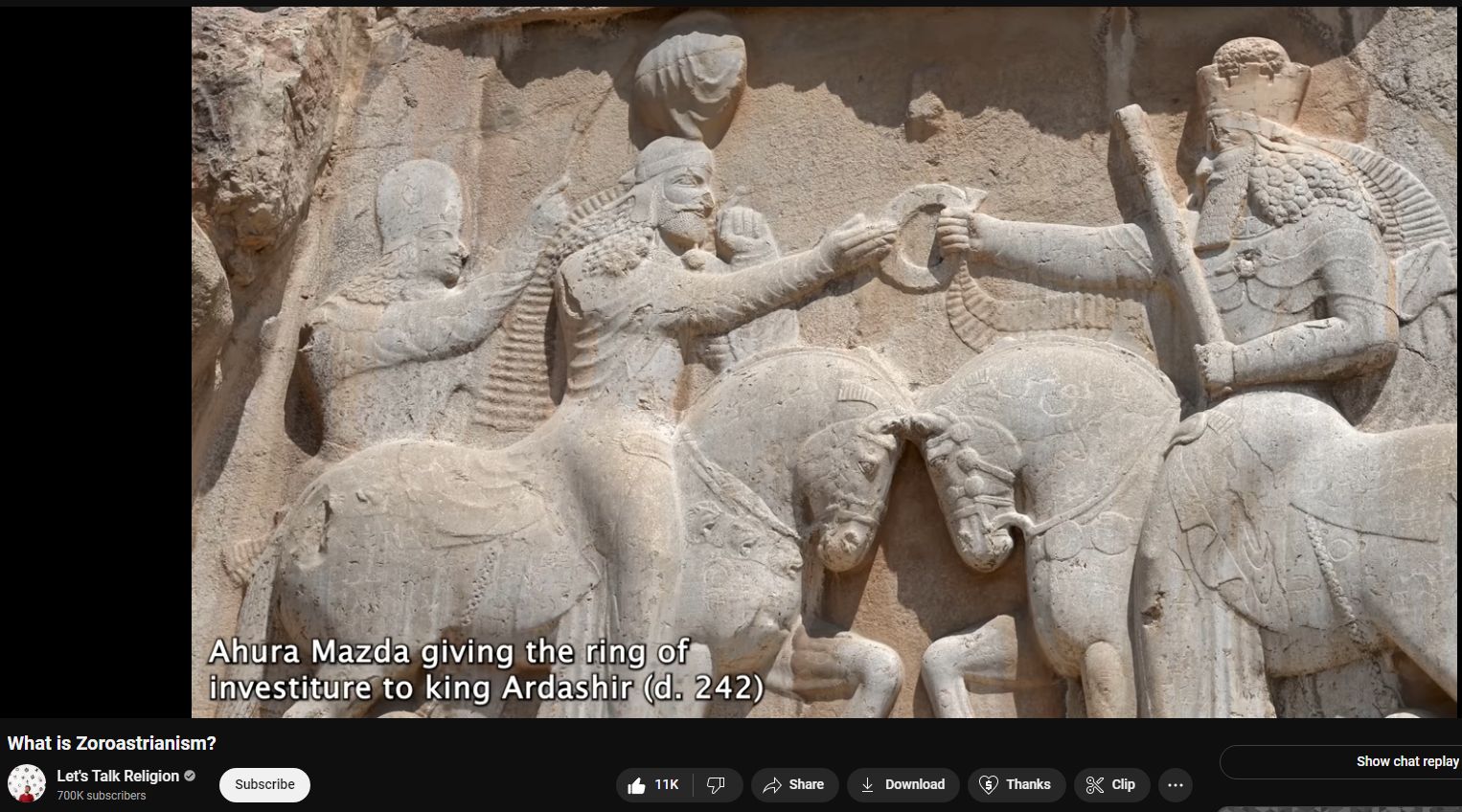
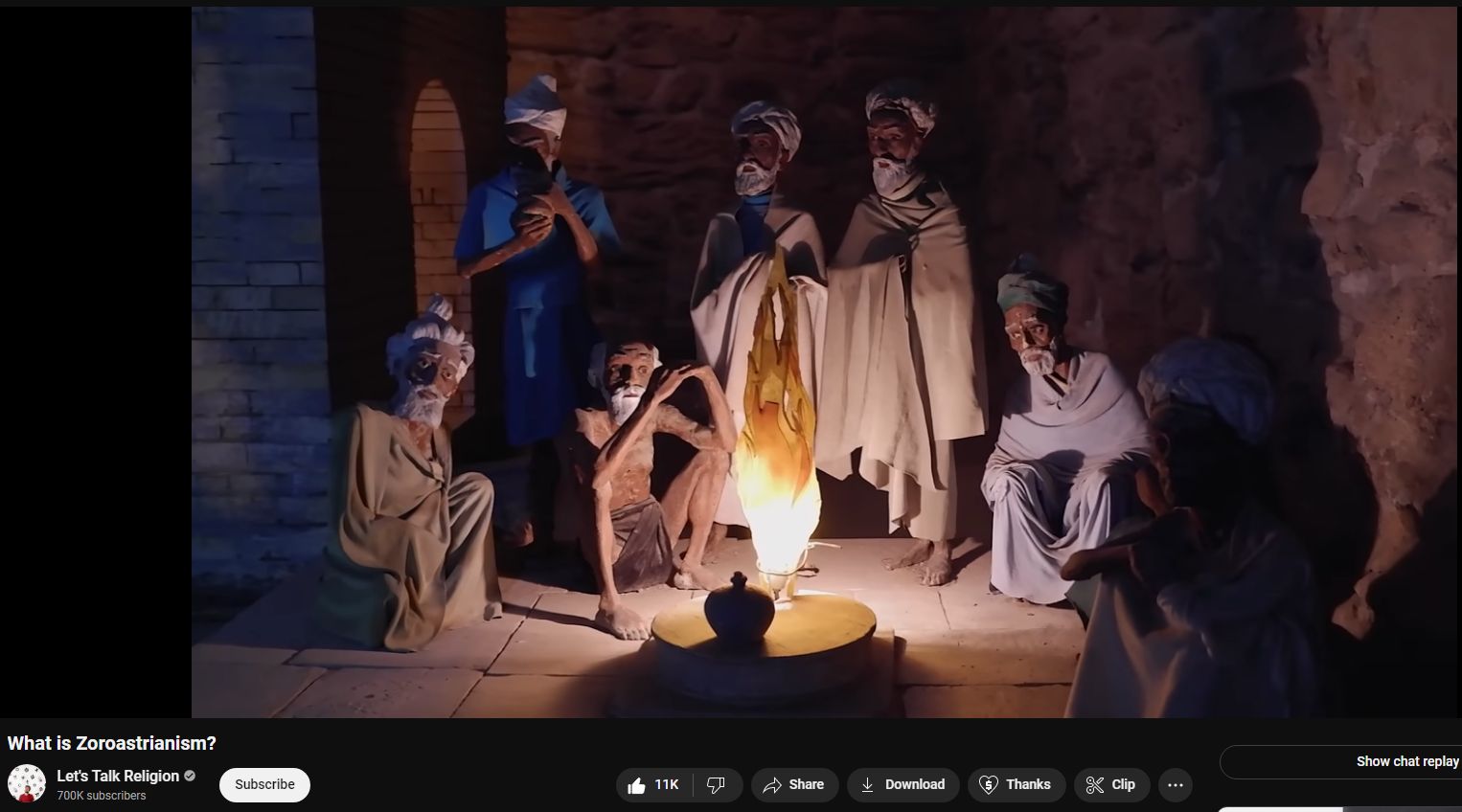
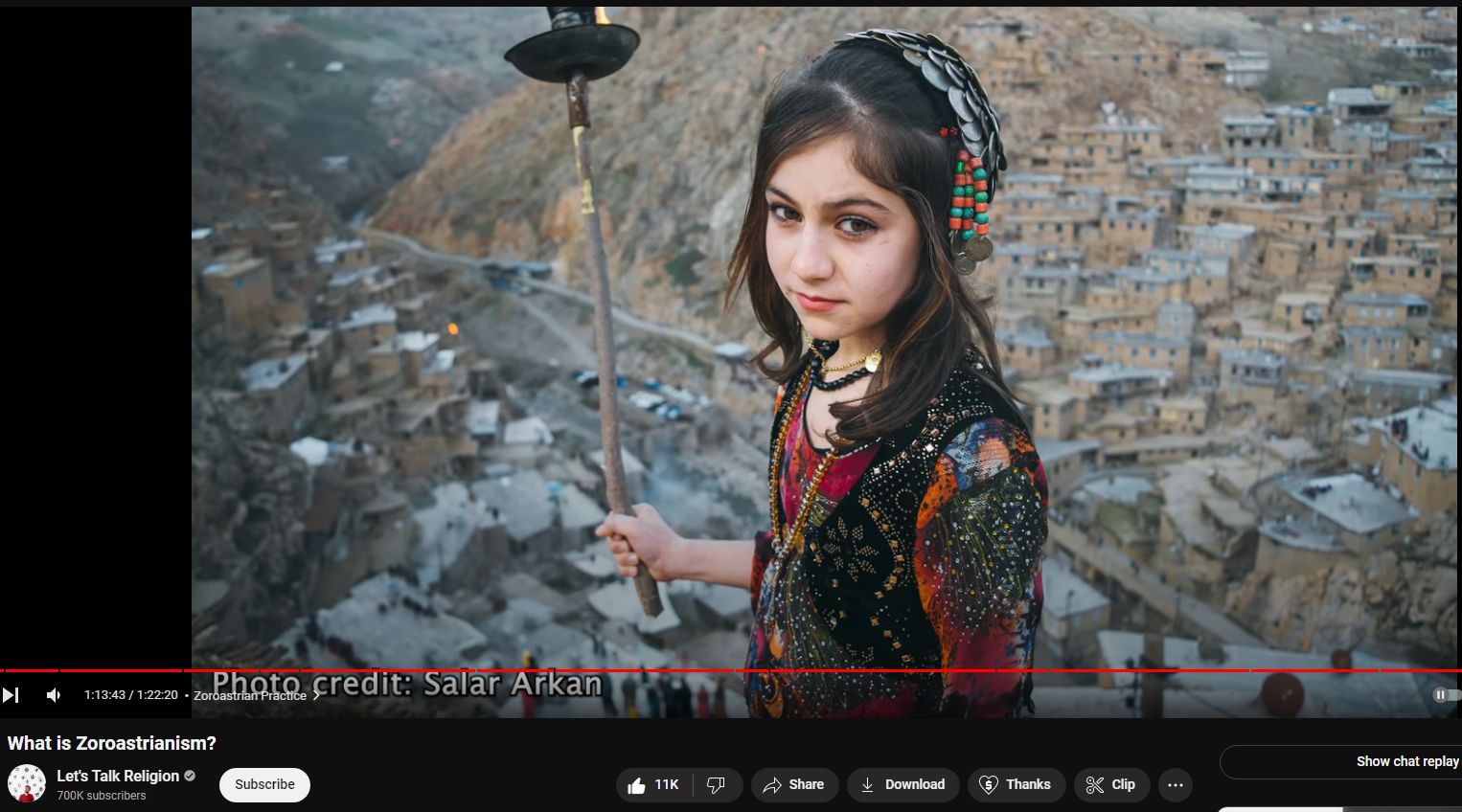
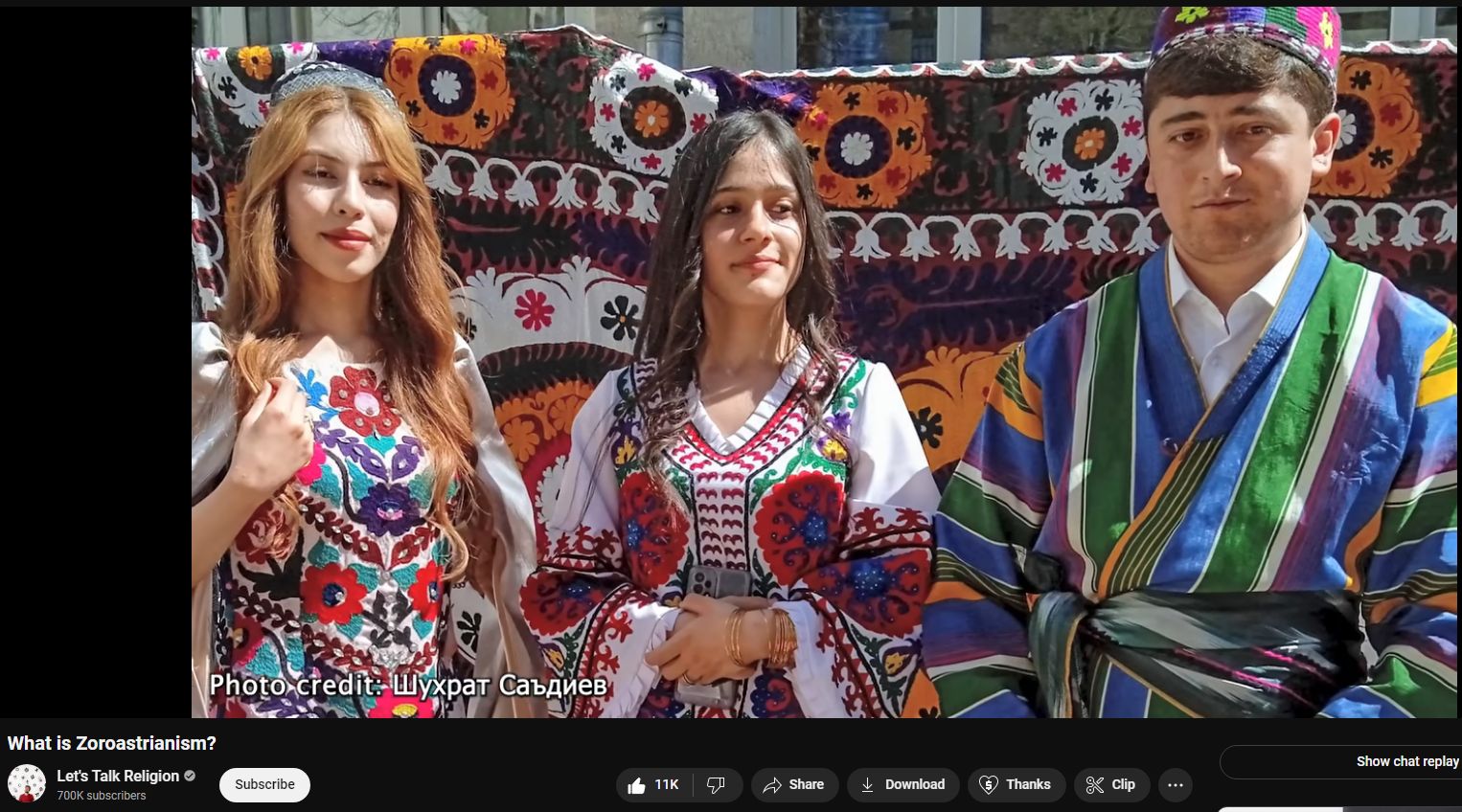
From the comments — “This is the best, most nuanced, historically and scholarly balanced video on Zoroastrianism out there. Thank you!”
“A fun fact: Zarathushti used to make a pilgrimage to Baku in modern-day Azerbaijan because the ground was so saturated with petroleum that flames would spontaneously pop up from the ground in some areas.”
“Thank you for this educational lecture about Zoroastrianism. I listened to your first one too, as l have been involved with Zoroastrianism through my husband, who studied Arabic, African languages, and Middle Eastern religions, and wrote his Thesis about Yazidism, and Zoroastrianism in 1970. At that time the Berlin Umboldt University had extensive books by German scholars about these two ancient religions, which l needed in essence to translate into my husbands language. RE: “Yazidism is a monotheistic ethnic religion (like Zoroastrianism too) , that has its roots in a western Iranic pre-Zoroastrian religion directly derived from the Indo-Iranian tradition.” (According to Wikipedia) l could not say it better, nor shorter in English, as it’s not my first language) A Kurdish speaking Yazidi Community is living in Melbourne, Australia till date, and of course they are living in the triangle Iran, Iraq, Turkey, and in small groups in the Middle East till today too, trying to preserve their religious, cultural, language traditions, but have lost lots of it due to the mentioned countries suppressing their believes, rituals, and assimilating them, or punish them like in Turkey. Many Yazidis have been massacred, genocides committed in the Triangle borders. It is a hot topic.”